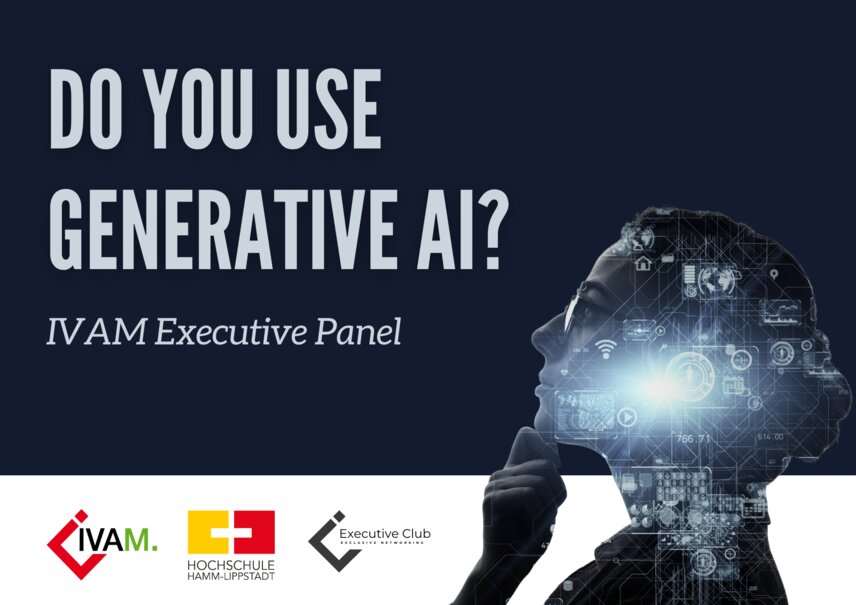
In today's world, characterized by rapid technological change and increasing digitalization, generative artificial intelligence (AI) is steadily gaining in importance and opening up new horizons for companies in terms of innovation and increased efficiency. Small and medium-sized enterprises (SMEs) in particular are faced with the challenge of recognizing the potential of these advanced technologies and harnessing them in order to remain competitive.
The fast-moving and innovation-driven high-tech sector in particular benefits from the application of AI technologies, as was confirmed in the current Executive Panel, which was created in collaboration with Hamm-Lippstadt University of Applied Sciences.
However, the level of knowledge about generative AI in the companies surveyed is still low.

71% of companies state that they have a low or very low level of knowledge in the field of generative AI in their company. According to their own statements, 29% of companies have a high level of knowledge in this new field of technology.
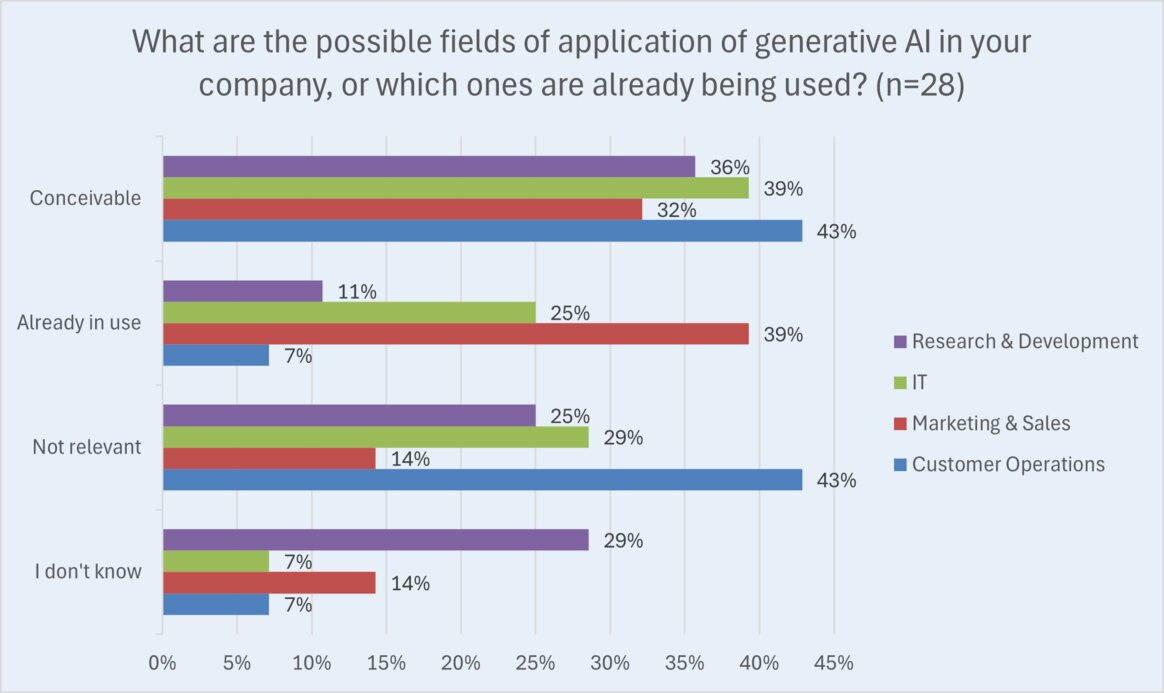
AI tools are used most frequently in the areas of Marketing & Sales (39%) and IT (25%). The figures for the optional use of AI in these areas are also high (Marketing & Sales 32% and IT 39%).
In the Customer Operations (7%) and Research & Development (11%) departments, the companies surveyed use generative AI tools less frequently. Despite the current low usage, however, these companies recognize considerable potential for future use. 43% and 36% of the companies surveyed consider use in these areas to be conceivable.
The concrete tasks that are processed in departments with generative AI are, for example, the preparation of patent applications, the revision of applications and contracts, as well as the experimental determination of reaction kinetics for self-optimizing systems.
The vast majority of the companies surveyed (79%) rate the benefits of generative AI for increasing work efficiency as high or very high. A third of respondents see high or very high potential in the development of new business and application areas. Slightly more than half of the companies rate the development of new business and application fields as low or very low (58%).
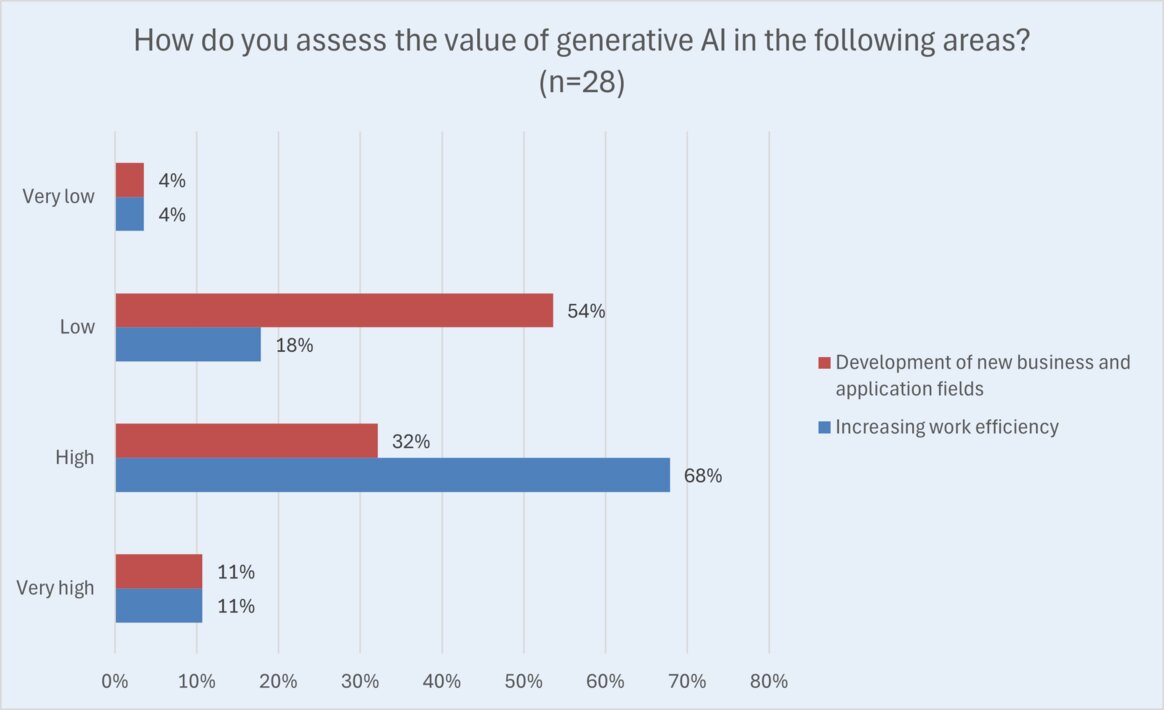
With regard to the implementation of AI in their own company, the majority of respondents state that training and further education measures are essential (68%). Furthermore, qualified personnel (57%) is an important resource. A secure legal framework is also a prerequisite for the introduction of AI (61%).

A quarter of the managing directors surveyed have legal and ethical concerns. These relate in particular to the infringement of property rights or the unchecked adoption of information generated by generative AI, the infringement of intellectual property and the quality of the results, as well as the obligation to label AI-generated content and the legal situation of the resulting intellectual property. 68% of respondents have no concerns about the use of generative AI.
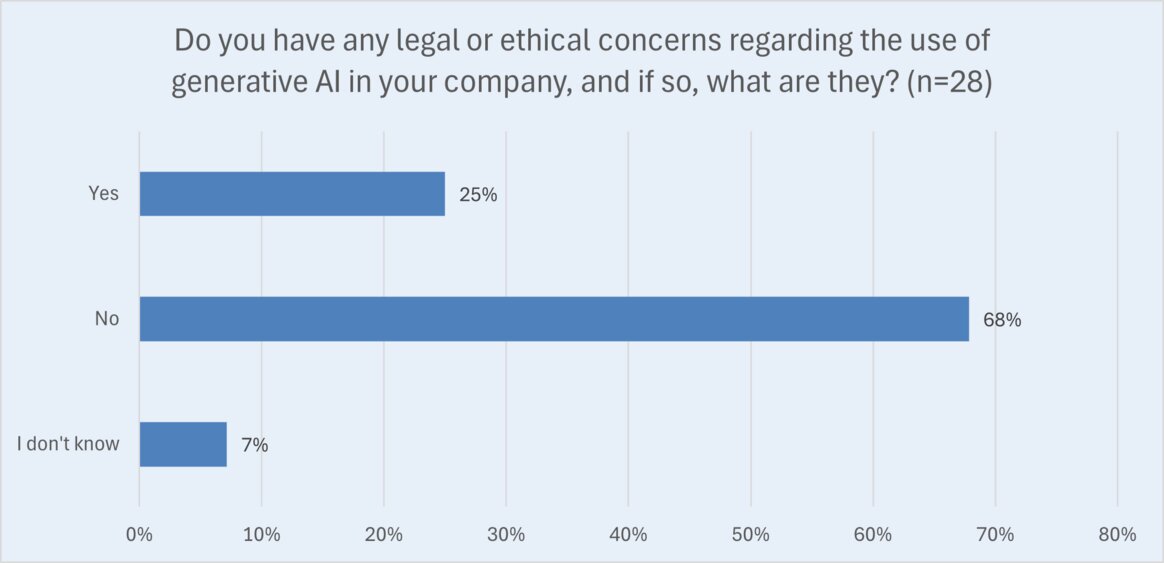
79% of managing directors believe that the use of generative AI in the high-tech sector will increase significantly. Only 14%, respectively 7% see the probability that generative AI will be increasingly used in the next five years as low or very low.
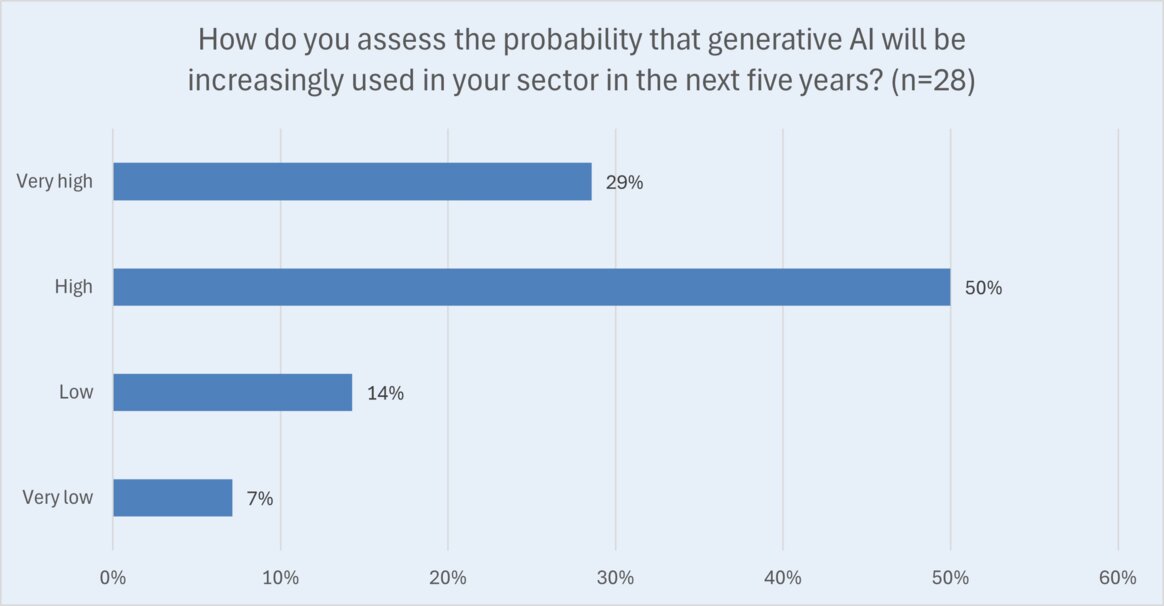
With regard to the implementation of internal company guidelines, the group of respondents is divided into companies where guidelines have already been implemented or are planned (43%) and companies that will not introduce guidelines (43%).
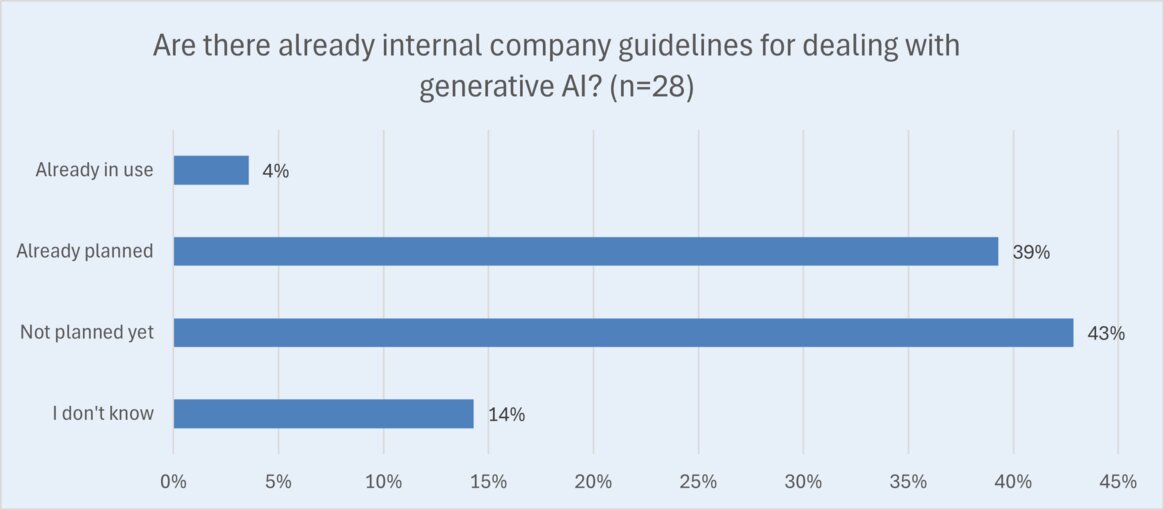
The survey has made it clear that generative AI applications will become significantly more important in the high-tech sector - and in various fields of application. Comprehensive training and further education measures, appropriately qualified personnel and a secure legal framework for the application are essential for successful implementation and use of generative AI in everyday operations.
The Student Lars Keirinn conducted this survey in coordination with his supervisor Prof. Uwe Kleinkes (HSHL) and the IVAM Microtechnology Association and successfully wrote his Bachelor's thesis entitled "Generative artificial intelligence in business practice: opportunities and risks from the perspective of medium-sized microsystems technology companies - an empirical study". The C-level of IVAM member companies was surveyed. 28 managing directors took part in the survey. The survey was conducted in November 2023.
The technical program for the IVAM Hightech Summit 2025, taking place on May 21–22 at Signal Iduna Park in …
When the current stage of the AI Act comes into force, all companies that use artificial intelligence must ensure that …
Cubic, an international manufacturer of advanced gas sensors and gas analyzers, is pleased to announce the approval of a new …